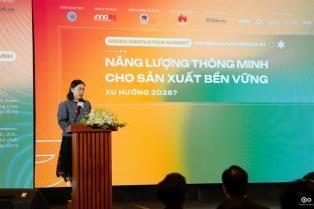The key forum provided a direct platform for Government leaders, ministries and agencies to engage with businesses, address challenges and promote solutions to drive the development of the private economic sector, an essential pillar for the country’s rapid economic growth.

HÀ NỘI — At the Vietnam Private Sector Forum (VPSF) 2025 held in Hà Nội yesterday, Prime Minister Phạm Minh Chính confirmed that the Party and Government will take further measures to continue developing the private sector.
The event provided a direct platform for Government leaders, ministries and agencies to engage with businesses, address challenges and promote solutions to drive the development of the private economic sector, an essential pillar for the country’s rapid economic growth.
At the forum, the PM reflected on Việt Nam’s 80 years of economic development, emphasising the vital role the private sector has played.
He encouraged private enterprises to continue innovating, developing sustainably and spearheading breakthroughs in science, technology and innovation.
Chính highlighted the need for the private sector to align with global changes by diversifying markets, products and supply chains, renewing traditional growth drivers such as exports, and advancing new engines of growth like green development.
The private economic sector must lead in innovation and digital transformation while deepening integration with regional and global economies, said the Government leader.
However, he also acknowledged ongoing challenges related to institutional frameworks, infrastructure, the labour force and administrative procedures that continue to hamper business development.
The Party and State reiterate their commitment to accompanying businesses through these challenges, he said, adding that the upcoming National Assembly session will address critical concerns by amending and supplementing policies and regulatory frameworks to create a more conducive business environment.
Ambitious infrastructure projects are expected to be built in the near future, including the completion of 3,000 kilometres of expressways spanning from Cao Bằng to Cà Mau, 1,700 kilometres of coastal expressways, the development of railways to Central Asia and the expansion of air, port and waterway routes. These initiatives aim to open new development spaces for enterprises, reduce costs and enhance competitiveness.
At the forum, Đặng Hồng Anh, chairman of both the Vietnam Young Entrepreneurs Association and of VPSF 2025, said that many recommendations from past forums have already been transformed into concrete policies, with reforms in administrative procedures and business conditions reflected in updated decrees and guiding circulars.
The recent consultation process involved nine local dialogue sessions and three thematic sessions focusing on start-ups, law and internationalisation. These sessions gathered over 3,000 opinions and recommendations, which will be presented at the high-level dialogue.
About 40 per cent of the feedback focused on the policy environment, with businesses expressing concerns over policy instability, unpredictability, overlapping legal documents, cumbersome administrative procedures and inconsistent enforcement - particularly regarding land-use investment projects.
Approximately 35 per cent of opinions highlighted difficulties in accessing credit, especially for small and micro enterprises. Feedback pointed out that while capital needs for expansion are substantial, bank financing remains limited, and support mechanisms are insufficient.
Infrastructure and logistics accounted for 25 per cent of concerns, with businesses noting that Việt Nam’s transportation costs are 10–15 per cent higher than the regional average, directly impacting competitiveness and profit margins. Enterprises called for greater Government investment in modern infrastructure and logistics to reduce these costs.
The remaining 20 per cent of opinions emphasised challenges in science and technology, especially among small businesses. These companies reported shortages in capital, skilled workers and digital transformation tools, all of which hinder their capacity for innovation.
These insights reflect a broad cross-section of the Vietnamese economy, including large corporations, small businesses, households and overseas Vietnamese entrepreneurs from 34 provinces and cities nationwide.
According to Anh, VPSF aims not only to facilitate substantive dialogue but also to generate specific, actionable solutions and ensure their thorough implementation.
The forum embodies the shared mission of the business community and the Vietnam Young Entrepreneurs Association to support Government efforts in fostering a vibrant private sector. VNS





